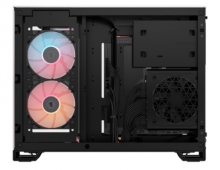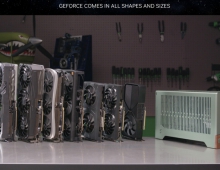
NVIDIA CEO Wraps Up All Things D Asia Event
As the wrap-up speaker at this week's All Things D Asia conference, NVIDIA's CEO, Jen-Hsun Huang, looked ahead to the launch of the next-gen of Tegra mobile chip called Kal-El. The challenge, he said, hasn't been making it more powerful. It's making it more efficient.
Noting that Asus will likely be the first company to use quadcore Kal-El in a
tablet - the Transformer Prime series is expected to launch early next month -
Jen-Hsun said the chip has a stealth super-low-power fifth core. It uses 20-times
less power than the four main cores.
Another key power-saving innovation of Kal-El is an image-processing technique that radically simplifies the way color is displayed , saving "tons of power" without reducing the visual experience, he said.
Reviewing plans for future iterations Tegra, Jen-Hsun said NVIDIA is working on three generations of the chip at a time. The timing of their launch remains fully on track, aligned to the cadence revealed last spring at Mobile World Congress, in Barcelona, last spring.
No delays are anticipated for coming generations that succeed Kal-El, including Projects Wayne, Logan and Stark, he said.
In response to a question about Microsoft's efforts to make Windows 8 available on ARM-based processors, he dismissed concerns that legacy applications may not run on them.
Backward compatability may well be an issue for certain software. But key titles that users really care about, like Microsoft Office, are likely to be released in forms that do run on ARM processors That, he said, would be a killer app.
Another key power-saving innovation of Kal-El is an image-processing technique that radically simplifies the way color is displayed , saving "tons of power" without reducing the visual experience, he said.
Reviewing plans for future iterations Tegra, Jen-Hsun said NVIDIA is working on three generations of the chip at a time. The timing of their launch remains fully on track, aligned to the cadence revealed last spring at Mobile World Congress, in Barcelona, last spring.
No delays are anticipated for coming generations that succeed Kal-El, including Projects Wayne, Logan and Stark, he said.
In response to a question about Microsoft's efforts to make Windows 8 available on ARM-based processors, he dismissed concerns that legacy applications may not run on them.
Backward compatability may well be an issue for certain software. But key titles that users really care about, like Microsoft Office, are likely to be released in forms that do run on ARM processors That, he said, would be a killer app.





















